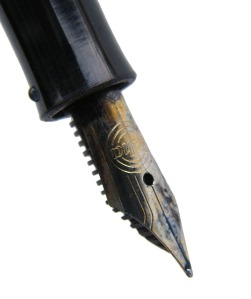Why am I afraid of letting go?
Here I stand, dirt in hand, and yet dropping it on top of that casket feels like the hardest thing in the world. It’s a funeral, so freezing up is allowed, and the rest of the line just passes me by. A few mourners pat me on the shoulder, but I hardly feel it. My gaze is fixed into the rectangular hole in the ground.
We try to sanitize death as much as we can, and maybe we should. But that doesn’t take away what it means, what it does. What it ruins.
Everyone has paid their respects now, and it’s just me standing in front of the grave waiting to be filled in. Even now, with everyone watching my pathetic inability to act, I don’t want to move, because opening my hand means surrendering. It means letting her go. I know that holding onto this fistful of dirt won’t bring her back, but it will keep me frozen in time, stuck as close to her as I will ever be again. It’s all that’s keeping me from having to move on.
They played Amazing Grace earlier and my eyes were dry. I was too numb to cry. But now they’re playing that stupid 90’s song that she loved and I’m bawling. I squeeze my kingdom of dirt a little harder. Now even more than before, I know that I’m not letting go, and I’m not sitting down.
The song ends, and people are starting to leave. I don’t turn around, but I can feel their glances. Let them think what they will. I’m not moving.
I hear whispered consultation behind me, and then my name. The question mark hangs in the air until it’s clear that I’m not going to turn around. A few of them just continue to stand there watching. They’re uncomfortable, for sure, but what is that to me? I lost her and she’s never coming back. I think I’m afforded my own measure of grief.
It’s such an odd tradition, sprinkling dirt over the casket. It’s not as if our pathetic contribution to the work makes any difference. Some minimum-waged worker who never met her, never cared for her, couldn’t tell the difference between her and every other corpse in this rotten place; he’ll still have to come over with a backhoe and fill in the grave. What does it matter if everyone attending the service drops in a fistful of dirt? It feels like giving up.
My hand is shaking and it’s turning white from how tightly I’m squeezing it shut. My name is spoken from behind again and I close my eyes, new tears coming. I frown and clench my jaw as I stare down into the abyss one more time. Then, I take my fistful of dirt and shove it into my coat pocket.
I turn around, keep my eyes on the ground, and I let them take me away. What do I care? What matters anymore? I can feel the weight of the damp dirt in my pocket as we walk, but I need it there. Letting go of it means letting her go. The final step.
So I don’t do it. I hold onto that soil as if it were a precious family heirloom. I take it home and place it in a jar, taking it to my bedside at night. I take it into town, where I have it set into a nice piece of glass, and then I place it on my mantel, except that I remove it whenever I go out. I have to take it with me. It is me. It’s not as small as it was when it was in the jar- the ornamentation made it bigger and heavier, but I take it with me nevertheless. Feels like giving up if I don’t. I have to carry it with me.
More and more of my days are spent fixated on this memorial. A wide, thick rectangle of glass with that same fistful of dirt exploding inside of it, keeping me locked in time to that day at her graveside. Without pictures I would have forgotten what she looks like. My shrine of dirt makes me remember what I need to know. My scars are precious to me. My wounds are kept close to my heart. My dirt memorial is with me always.
I find excuses now, years later, to shirk off others in favor of staying in and caressing my glass fixture filled with dirt. My work has suffered. My pain is constant. My devotion is unquestioned. Years, opportunities for happiness, and countless joys pass me by. How could I let them in? I am consumed with holding onto my fistful of dirt. I understand now that I must not only keep it with me always, I must always carry it. Its weight is oppressive, but I carry it still, for her. It is for me also.
Time stalks on unabated and I order a castle of thick, smoky glass built all around me and my precious memories. I no longer consider it safe to carry my handful of dirt cast in glass out into the world. Someone may dispute my right, the glass may break. It can never leave, so I can never leave. The commissioned walls of protection rise higher and higher, thicker and thicker. Guests pound on the doors of the great, cavernous fortress that I have built, but I ignore them and their cries of feigned pity. I ordered my doors built without hinges, the knobs on the outside only constructed out of obligation. I am encased in protection, alone, safe, and bitter. My holy fistful of dirt is before my eyes constantly. I regard it with all that I possess.
Who are they to judge me? My burden is a glorious one! Who have they lost? How could they know? How could they understand the magnificent and sublime suffering that I have gone through these many years, my youth now only a vague memory, my hands arthritic from clenching at the glass artifice that never leaves my arms. I have done what I needed to do, everyone else was too weak. No one understands. I am now only steps from the grave myself, a wasted life pined away in memoriam. I had to do it. It was inevitable.
Or, I suppose, I could have let the dirt drop all those years ago. I could have said goodbye and opened my hand. That is the other option.



